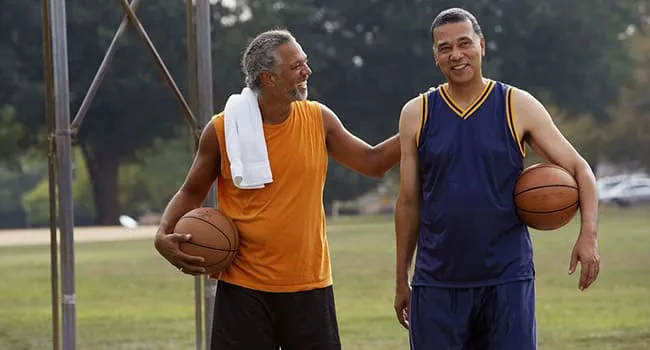
Gym workouts boost cardiovascular health. Sports do that and more, says Michael Jonesco, DO, a sports medicine specialist at the Ohio State University Wexner Medical Center. Because they require you to act and react at a moment's notice, sports like tennis, basketball, and soccer can help you improve your hand/eye coordination, fine motor movements, adapting and changing direction, and balance.
And, says Jonesco, you can't slack: "At the gym, you may be less likely to push yourself than when you're up against your peers."
What sports should you play? Ones you enjoy. You won't stick with sports you don't like, says Jonesco. "Whatever you like and whatever your body can tolerate: That's what makes it sustainable."
He also advises that you -- and your doctor -- consider your health. If you have bad knees, for example, sports where you run and jump, like basketball, may not be right for you. Also to be considered: being overweight or obese, your family's history of heart disease, and diabetes.
Jonesco also recommends that you supplement sports workouts with yoga and other exercises that build muscle, core strength, and flexibility. Do 20 to 30 minutes once or twice a week, and you will improve your game and cut your risk of injury on the court or field.
Finally, sports can boost your mental and emotional health. "The real benefit of sports," says Jonesco, "comes from the social interaction, the stress reduction, the communication, and the competition that playing sports provides."
4 Tips
Jonesco explains how to play sports for maximum health benefits:
- Eat well. "Vigorous sports demand more and better food to fuel yourself. If you want to get serious, consult a sports nutritionist."
- Drink plenty of water. "Don't wait until game day to boost your water intake. Start hydrating 3 to 4 days in advance."
- Be a buddy. "Play with friends, and you'll likely keep playing. You'll have more fun, and they will hold you accountable if you're a no-show."
- Know your limits. "Play too hard and for too long, and you risk injury. Schedule breaks and, if necessary, reduce your time in the game."
Find more articles, browse back issues, and read the current issue of WebMD Magazine.

